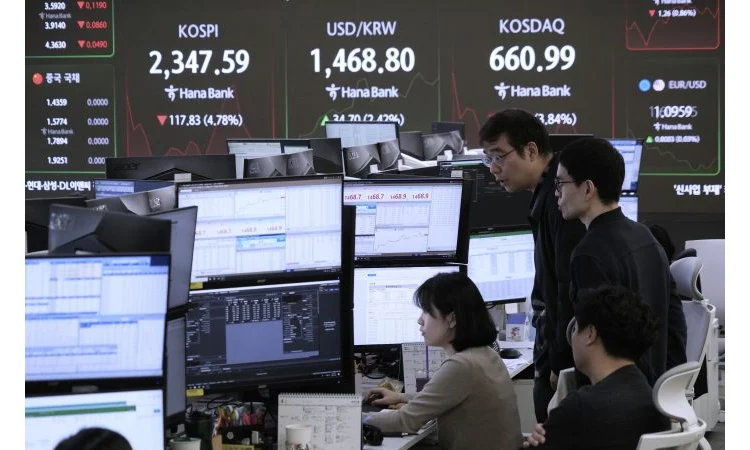Japan’s Nikkei Dives, Yen Rallies as U.S. Tariffs Bite

Tokyo stocks extended their losses and the yen surged against the dollar after U.S. tariffs against several countries, including Japan, came into force. Around half an hour after the tariffs were imposed, the Nikkei 225 index fell by 4.86 percent, reaching 31,407.66. Meanwhile, the yen strengthened by 1.1 percent, rising to 144.73 per dollar.
The U.S. tariffs, which target various industries, including automobiles, steel, and aluminum, have sent shockwaves through global markets, causing heightened uncertainty. Investors are increasingly worried about the long-term economic impact of these measures, especially as the U.S. continues to ramp up its trade war with key partners like China, the European Union, and Japan.
Japan, heavily reliant on its exports, has expressed concerns that the new tariffs will severely damage its economy, particularly its manufacturing and automotive sectors. The yen’s rise against the dollar is a double-edged sword for Japan, as it makes exports more expensive, potentially undermining the global competitiveness of Japanese goods.
The escalating trade conflict has also rattled foreign exchange markets. While the yen strengthened against the dollar, the broader trend of trade tensions has caused significant volatility in other currencies as well. The Indonesian rupiah and South Korean won also hit record lows, as concerns over the impact of the U.S. tariffs spread across the region.
The Japanese government has vowed to take action in response to the tariffs, but its options are limited. In the meantime, Tokyo investors are bracing for further market turbulence as the global economic outlook becomes increasingly uncertain.
The ongoing trade standoff has already begun to ripple through global supply chains, with industries ranging from technology to automotive feeling the pinch. As the situation develops, many analysts predict that the economic fallout from these tariffs could extend beyond just the targeted countries, potentially triggering a broader global recession.





